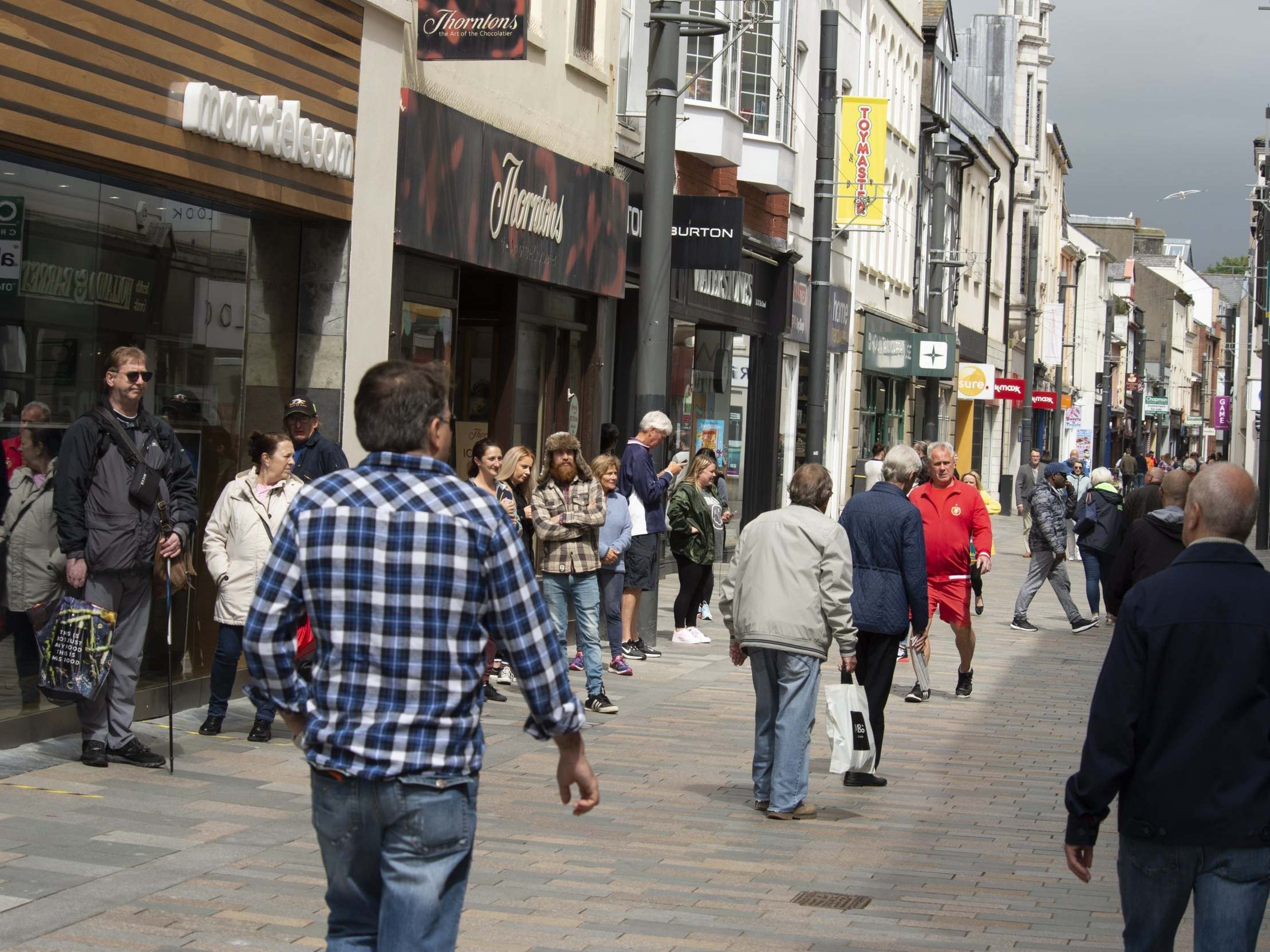Shops may be opening, but that will not save the economy. We need the joy of life back first
Governments are only governments. They can stop people doing things (not always successfully), but they can’t make them spend money if they don’t want to, writes Hamish McRae


Governments can tell shops they can open, but they can’t make people go in and buy.
The world is at a strange turning point. Gradually the lockdowns are being lifted everywhere – a little sooner in some countries, a little slower in others. However, governments are only governments: they can stop people doing things (not always successfully), but they can’t make them spend money if they don’t want to. One of the universal features of the past few weeks has been that savings rates have soared just about everywhere. Incomes have fallen for many people, but spending has fallen more.
So in Britain, car showrooms and outdoor markets can open from next Monday, and all shops and shopping centres from 15 June, albeit with the social distancing we have got used to in the places that are now open. However, just about everything else – restaurants, pubs, hotels, fitness centres, cinemas, theatres, hairdressers and so on – will remain shut. The fun elements of the economy will be gone for a while yet.
This is a huge problem. The British government, like others around the world, is not only urging us to be careful, it is also signalling that the normal ways in which we want to live our lives, such as having our hair cut, are out of bounds. You can, of course, understand why. Having handled the initial response to the virus badly by reacting too slowly, the government does not want to be seen to ease too fast. The result is that there is huge social pressure to comply. People who sunbathe in the parks – a pretty innocent activity – have been condemned by their fellow citizens and branded “covidiots” in the press.
The result in the UK, at least, will be that it will take a long time to crank up the economy. Of course, the longer it takes to get people spending, the longer it will take to get people earning. Public servants and people in secure jobs will emerge richer from all this. Their incomes will have remained the same, but their spending will have gone down. It is the young and the workers in less secure activities that carry the costs. The least affected in health terms are the most affected in financial terms.
So what should we look for to tell us how quickly the economy will recover? Three things.
First, what happens in other countries that are culturally close to us and are a little further along the track. The US is the obvious model. If you look at, say, the proportion of GDP that we spend on consumption, Britons are much closer to the Americans than to the Germans or Japanese. We don’t have numbers yet, but the results of the Memorial Day sales will give us the first clues. When shops open in the UK, there will be a string of bargains because they have a lot of stock to unload. The challenge will be to create a wow factor – the notion that this is a one-time opportunity to get extreme bargains. But it is tough to create a sales frenzy in a social-distancing world. If, however, US retail sales start to trend upwards in the next few weeks, then our retailers can be a little more optimistic.
Next, we need to get the pubs (and the other fun bits of the economy) open and functioning normally. Until that happens, there cannot be a sustained recovery because you need the employment that these service industries generate to support demand. So we won’t know until September whether the initial bounce that is coming through at the moment will be sustained. Statistically, things are turning up. The data points to a trough in the world economy happening in April, but I’m worried things will flop back in the autumn as unemployment climbs and people remain scared.
Finally, there can be no sustained global recovery until people can move around the world again. Travel and tourism are 11 per cent of the world economy and employ even more. Activity is a tiny fraction of what it would normally be – indeed, in some areas such as cruises, close to zero. Opening shops is much less important than opening travel. That sadly seems further way than ever.
Pull all this together and the fact that UK shops should be allowed to open seems a rather tiny step. Human beings like to buy stuff, but they like to travel and enjoy each other’s company even more. The world economy cannot truly recover until some joy comes back into it.
Join our commenting forum
Join thought-provoking conversations, follow other Independent readers and see their replies
Comments
Bookmark popover
Removed from bookmarks